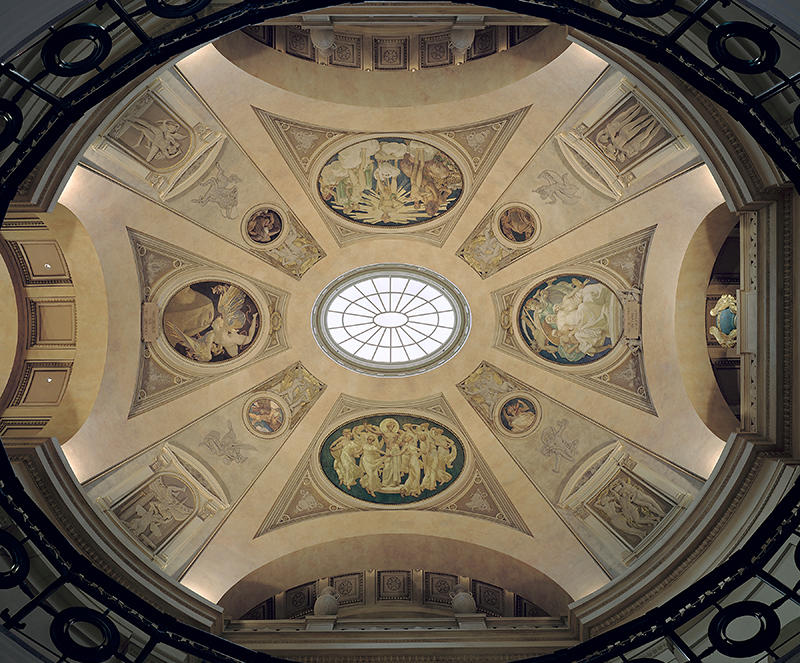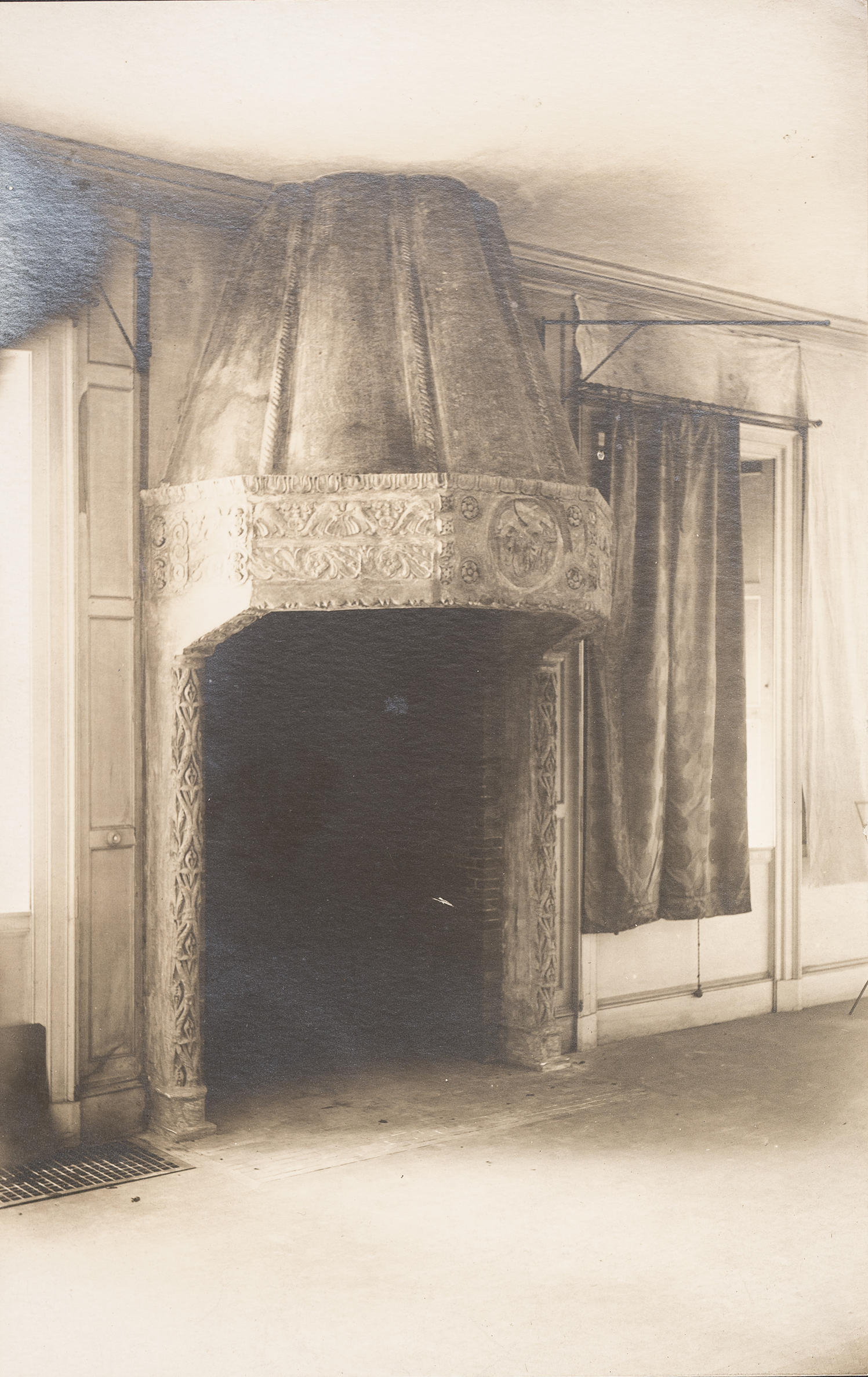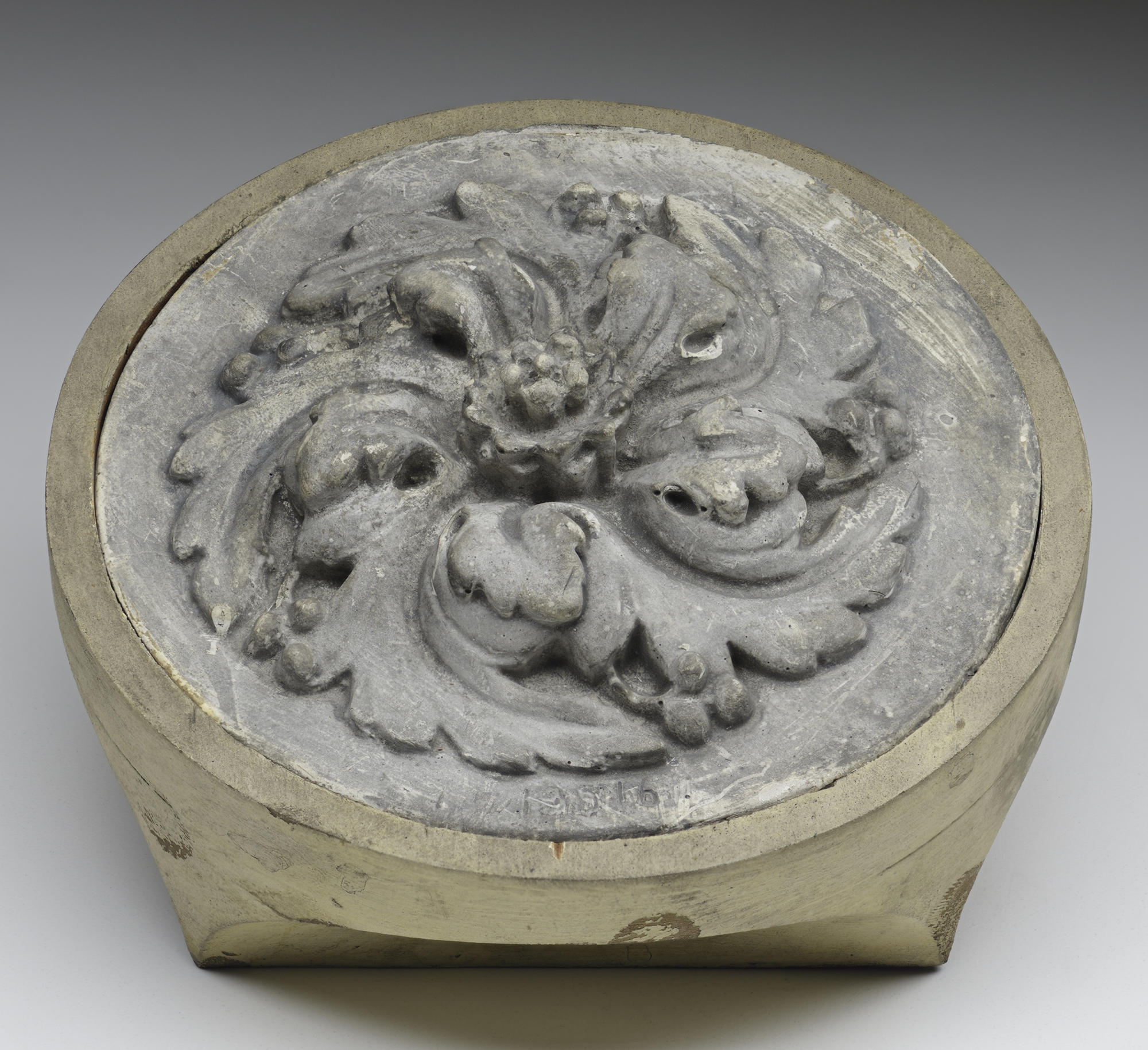In 1886, Henry James introduced Isabella Stewart Gardner to renowned painter John Singer Sargent, beginning a friendship that spanned almost 40 years. Isabella was delighted when the Museum of Fine Arts, Boston commissioned Sargent to decorate their new building in 1916, and she closely followed the project’s progress. Even after a stroke left her partially immobilized in 1919, Isabella visited the rotunda several times, once being carried onto the scaffolding in a bath chair.

The Rotunda of the Museum of Fine Arts, Boston with murals by John Singer Sargent, 1916–1921
Photograph © 2019 Museum of Fine Arts, Boston
Sargent designed not only the rotunda’s paintings and sculpted reliefs, but also its ceiling moldings. He experimented with many different designs and tested them in a scale model of the rotunda before settling on his final choices for enlargement and installation. Gardner collected the cast offs and used them to construct a fireplace hood at Green Hill, her home in Brookline. Sargent commented that if “architecture is frozen music” he would like to be around when the “fireplace melted.”*

American, Sargent Fireplace at Green Hill, Brookline, Massachusetts, May 1919
An extra rosette ended up in a cupboard in the Macknight Room, along with other objects that held personal meaning for her.

John Singer Sargent (American, 1856–1925, designer) and P.P. Caproni and Brother (active Boston and New York, 1892–1927, manufacturer), Rosette for the Rotunda Ceiling Moldings, Museum of Fine Arts, Boston, about 1919
Although not usually on view, it can be seen in the special exhibition Boston’s Apollo: Thomas McKeller and John Singer Sargent through October 12, 2020. Discover it, and other objects from the Museum’s hidden collection on the online collection.
*David McKibbin, Sargent’s Boston. Exh cat. (Boston 1956), p. 52.
You Might Also Like

Explore the Exhibition
Boston's Apollo: Thomas McKeller and John Singer Sargent

Buy the Catalogue
Boston's Apollo: Thomas McKeller and John Singer Sargent

Explore the Collection
John Singer Sargent (American, 1856-1925), Cast of an Urn for the Rotunda, Museum of Fine Arts, Boston, 1916-1921